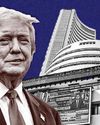Satyajit Ray’s famous Bengali film, Seemabaddha (1971), opens with the dialogue that translates to, “One of the major problems in Bengal is unemployment.”

The same is true for India now. According to a report published by the think-tank, the Centre for Monitoring Indian Economy (CMIE) that tracks business and economic data, currently, around 31 million unemployed Indians are seeking jobs.
Where are the jobs?
According to a report published in The Hindu in 2017, the Chief Economic Adviser, Arvind Subramanium had pointed to the need to achieve an economic growth of 8% to 10% to solve the problem of jobless growth in India. He had raised concern over the under performance of the information technology (IT), construction, and agriculture sectors, which had traditionally served as prominent job generating sectors for the Indian economy. According to Labour Bureau figures, India added around 1.35 lakh jobs in eight labour-intensive sectors in 2015 as compared to the 9.3 lakh jobs that were created in 2011.
Higher economic growth alone will not solve this problem. Jobs can be created when growth comes from the transition of labour from informal sectors like agriculture to formal sectors like manufacturing and service. Such extensive growth may run the risk of stagnation once supply from the informal labour market gets exhausted. On the other hand, growth can come about without any substantial job creation in the formal sectors of the economy but through improvements in productivity. The growth record of several developed economies even after modernisation of their labour force explains such intensive growth.
India’s unemployment problem
Prime Minister Narendra Modi has pitched for the greater use of technology. Yet, there’s stagnation in India’s IT sector. The country’s unemployment saga lies beyond the formal job market. Around 77% families have no regular wage earner and more than 67% have income less than 10,000 a month.
この記事は BUSINESS ECONOMICS の November 1 - 15, 2018 版に掲載されています。
7 日間の Magzter GOLD 無料トライアルを開始して、何千もの厳選されたプレミアム ストーリー、9,000 以上の雑誌や新聞にアクセスしてください。
すでに購読者です ? サインイン
この記事は BUSINESS ECONOMICS の November 1 - 15, 2018 版に掲載されています。
7 日間の Magzter GOLD 無料トライアルを開始して、何千もの厳選されたプレミアム ストーリー、9,000 以上の雑誌や新聞にアクセスしてください。
すでに購読者です? サインイン

Bank of Baroda, Kolkata Zone organised Mega Kisan Melas in West Bengal
Bank of Baroda (BOB) organised Mega Kisan Mela at Konkalitala in Birbhum District of West Bengal on November 18, 2024 as a part of the 7th Edition of the Baroda Kisan Pakhwada (BKP).

Time-Bound Disposal of Cases to Expedite the Delivery of Justice and affordabe by all in India
The delay in the disposal of cases in Indian courts remains a significant hurdle to the nation's progress.

Dev Deepawali: A grand celebration of light, spirituality, and culture in Varanasi
The holy city of Varanasi, often regarded as India's spiritual and cultural heart, came alive with the splendor of Dev Deepawali on the sacred day of Kartik Purnima.

The life of Job 'Ye judge not the judgment of God' - Jesus Christ
The Holy Bible reveals through the life of Job how the Lord tests the righteous and that faith helps one to overcome life's adversities.

India has the highest potential for the garment industry, only a conducive government policy is required.
India's textile industry is poised for remarkable growth, with expectations to double its contribution to the GDP within the next six to seven years.

Global Public Debt may be worse than it appears, warns IMF
Global Public Debt Set to Exceed $100 Trillion, Warns IMF

The economic consequences of Trump's Presidency: A global perspective
One of the key economic factors contributing to the Democrats' loss in the US elections was the significant rise in inflation, which was initially triggered by the COVID-19 pandemic and exacerbated by the Russia-Ukraine war.

Challenges and Successes in West Bengal's Education Sector: A Comprehensive Overview
The education system in West Bengal, particularly in districts, villages, slums, and government institutions, reflects a blend of progress and ongoing challenges.

What India can expect from Trump's return
I may be too early to predict how Donald Trump's second term as president will impact the global oil market.

Stocks Surge Following Donald Trump's Election as 47th President of the USA
Stocks soared following the election of Donald Trump as the 47th President of the United States. Investors anticipated that the Information Technology (IT) sector would benefit from lower corporate taxes under the Republican regime, with IT stocks leading the rally.